If you are an avid chess player and looking to make a custom diy chess board yourself, we have the perfect cheap solution below. By obtaining an old square table from a garage sale or from Goodwill, you can make your own for just about $15 dollars (not including the chess pieces). There are many different methods to making your own chess board but this one is the easiest and cheapest we have found.
You will need these items to make your own custom chess table:
1 – Old wooden SQUARE table
1 – Roll of masking tape
1 – Exacto knife
1 – Can of wood stain (Your choice of color)
1 – Brush for wood stain
1 – Brush for polyurethane
1 – Can of poly urethane
1 – Paper to lay on top of board for blocking paint over spray
1 – Set of chess board pieces (Tournament Chess Pieces)
Here is the junk throw away table we purchased from Goodwill for around $5 dollars.
The first thing we did was sand the table to remove all of the old varnish and wood stain chemicals.
We then gave the bare table a few coats of heavy duty wood stain made by MinWax named Red Mahogany.
Once the stain was dry we applied masking tape and made the lines for our diy chess board.
We made sure to space out the lines so the chess squares would be exactly 1.5″ inches.
We used an Exacto knife to cut away the excess masking tape.
We then covered the rest of the table with paper and only left the squares exposed for our custom paint.
We then used a flat black non drip spray paint to color the squares for our chess board.
We patiently let the black paint dry and then carefully removed the masking tape and paper.
Next we added 4 coats of a heavy duty polyurethane to help keep the chess board protected.
Here is the chess board after the polyurethane has dried. Notice the nice deep shine.
The next thing was to add our chess pieces!
This complete project only cost us about $15 dollars and about 4 hours of time.
Very inexpensive and fun to do plus we now have our own custom chess table!
HOW TO MAKE A CUSTOM CHESS BOARD


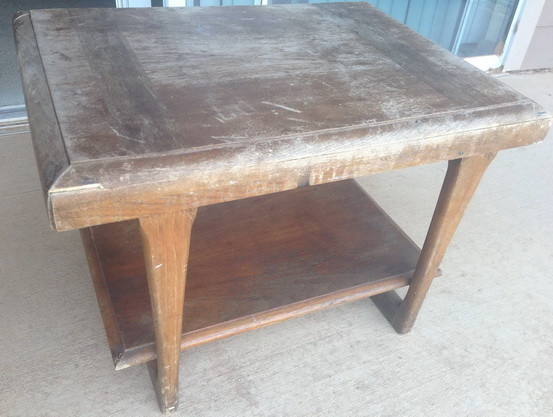
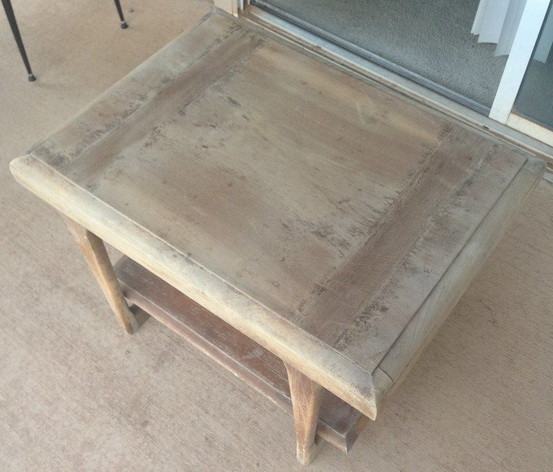
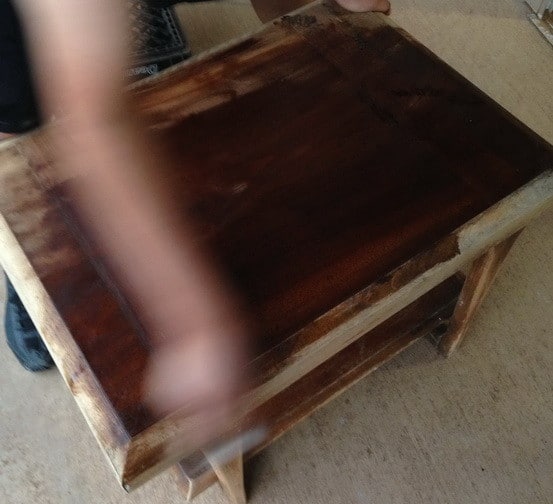
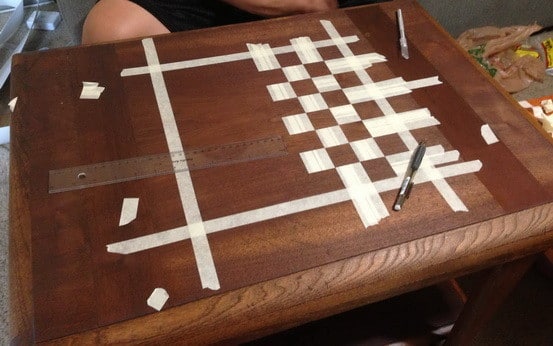
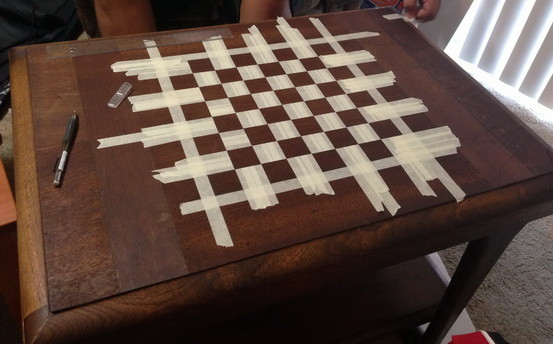
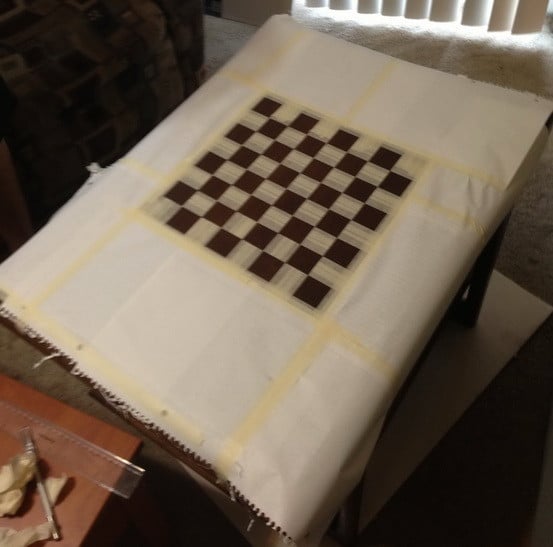
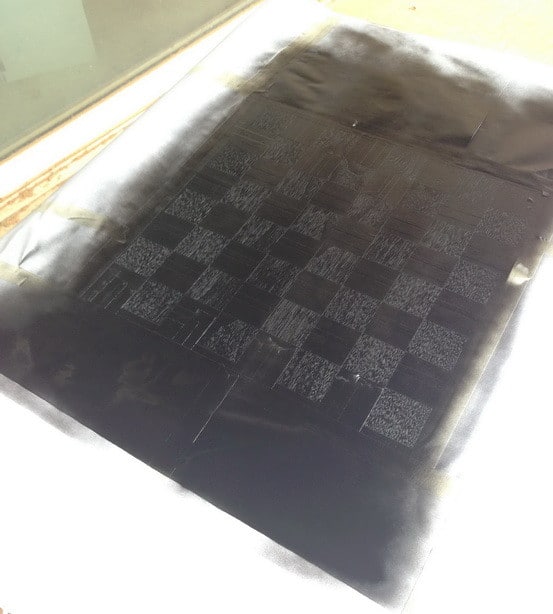
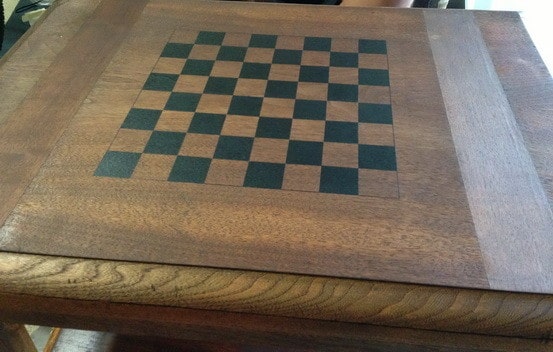
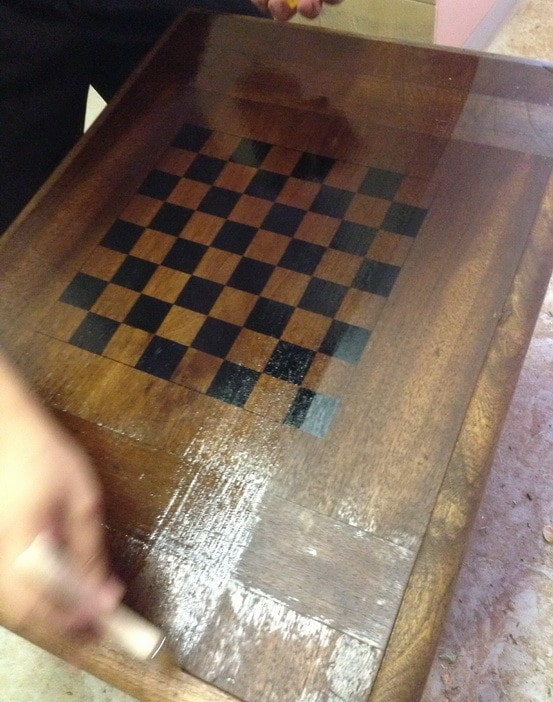
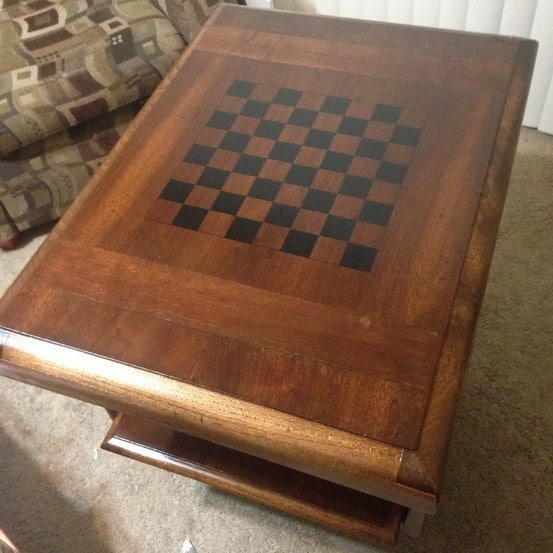
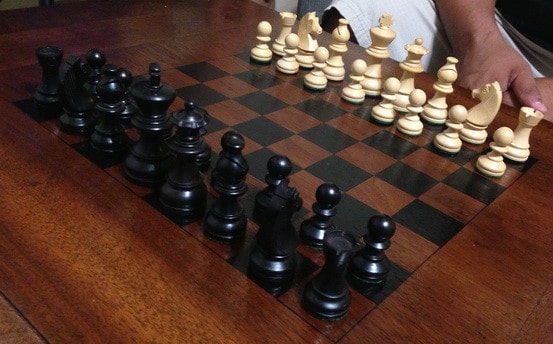


How did you about making the fine line borders for the ‘white’ square on the perimeter of the board?